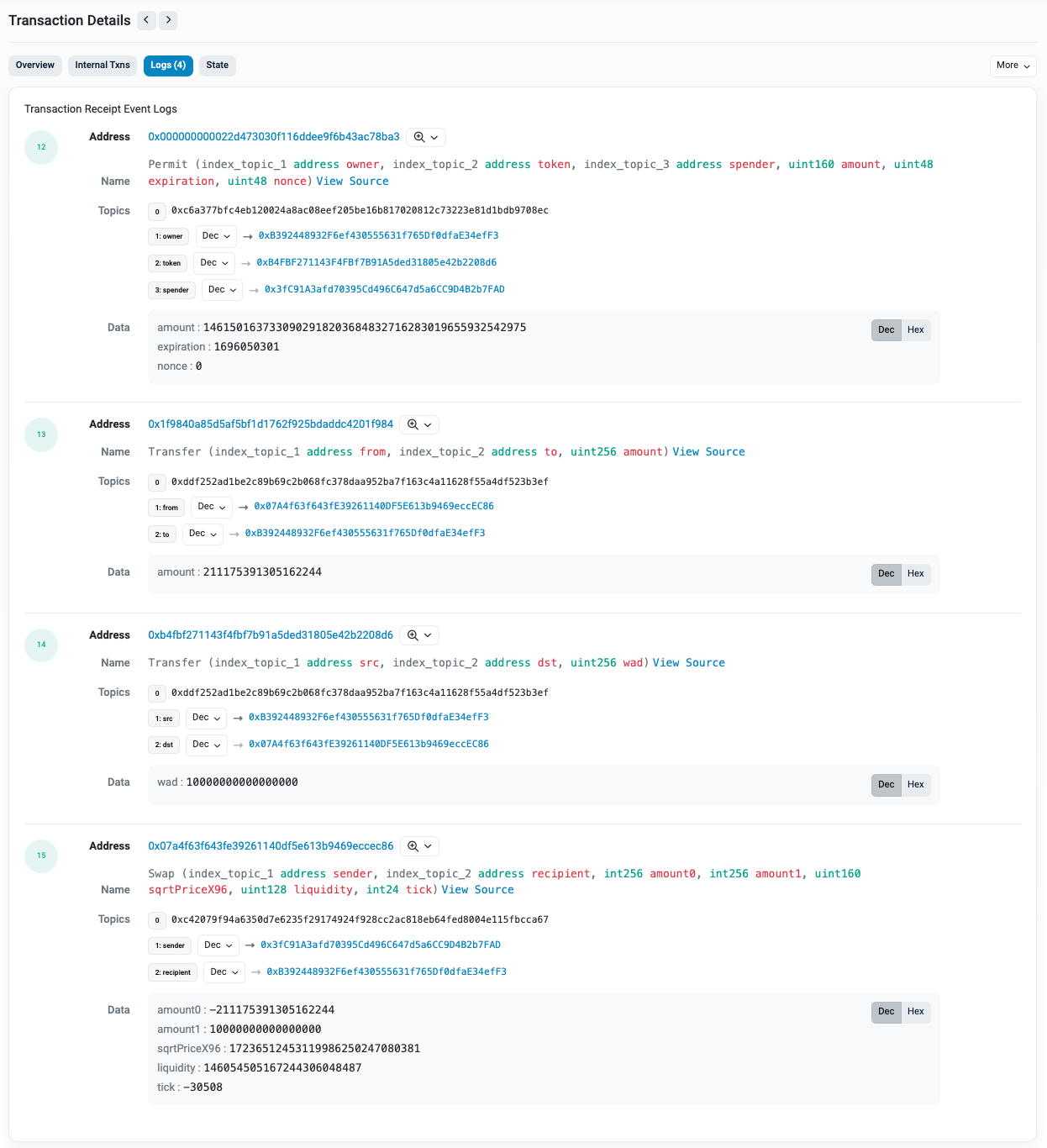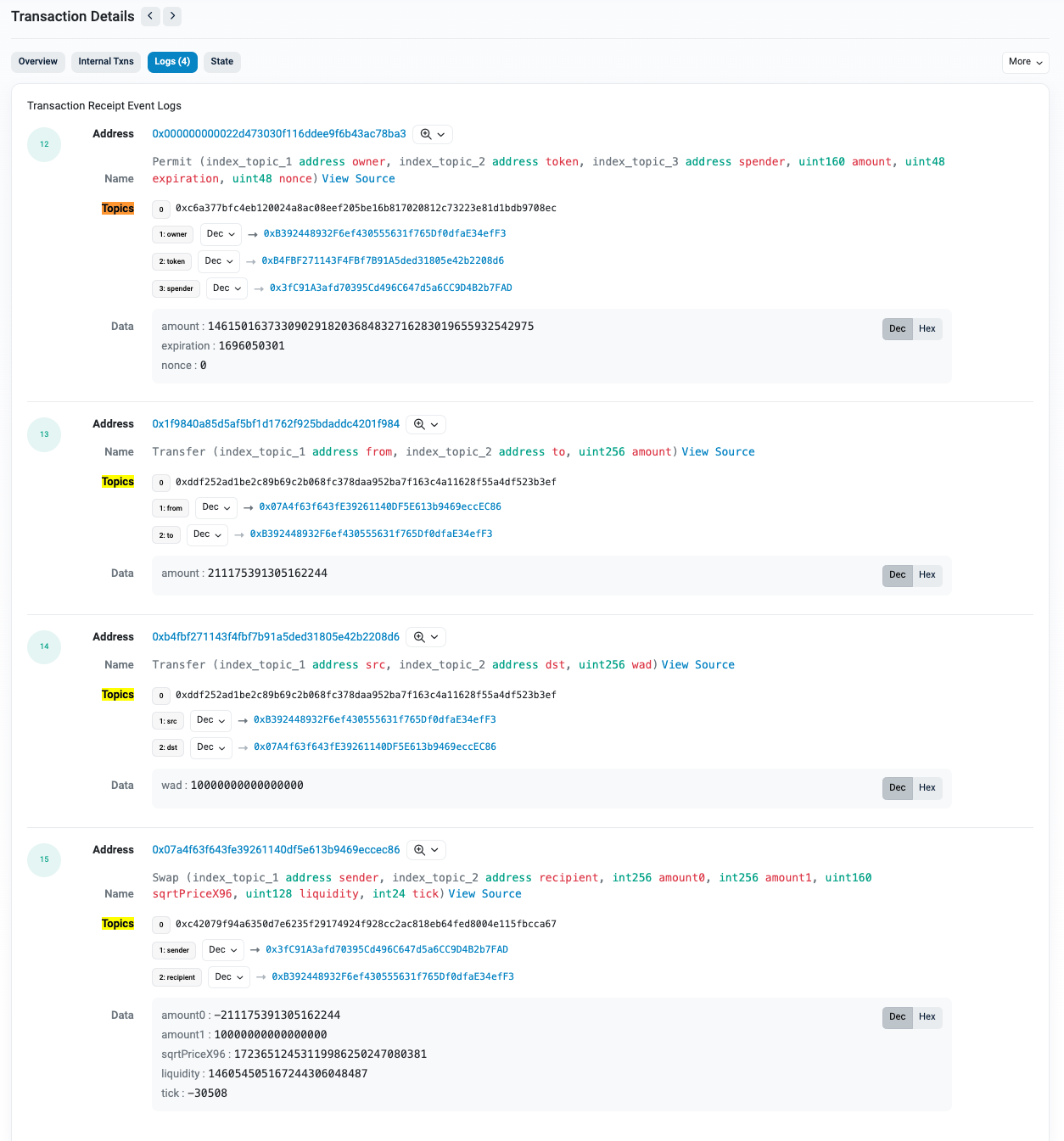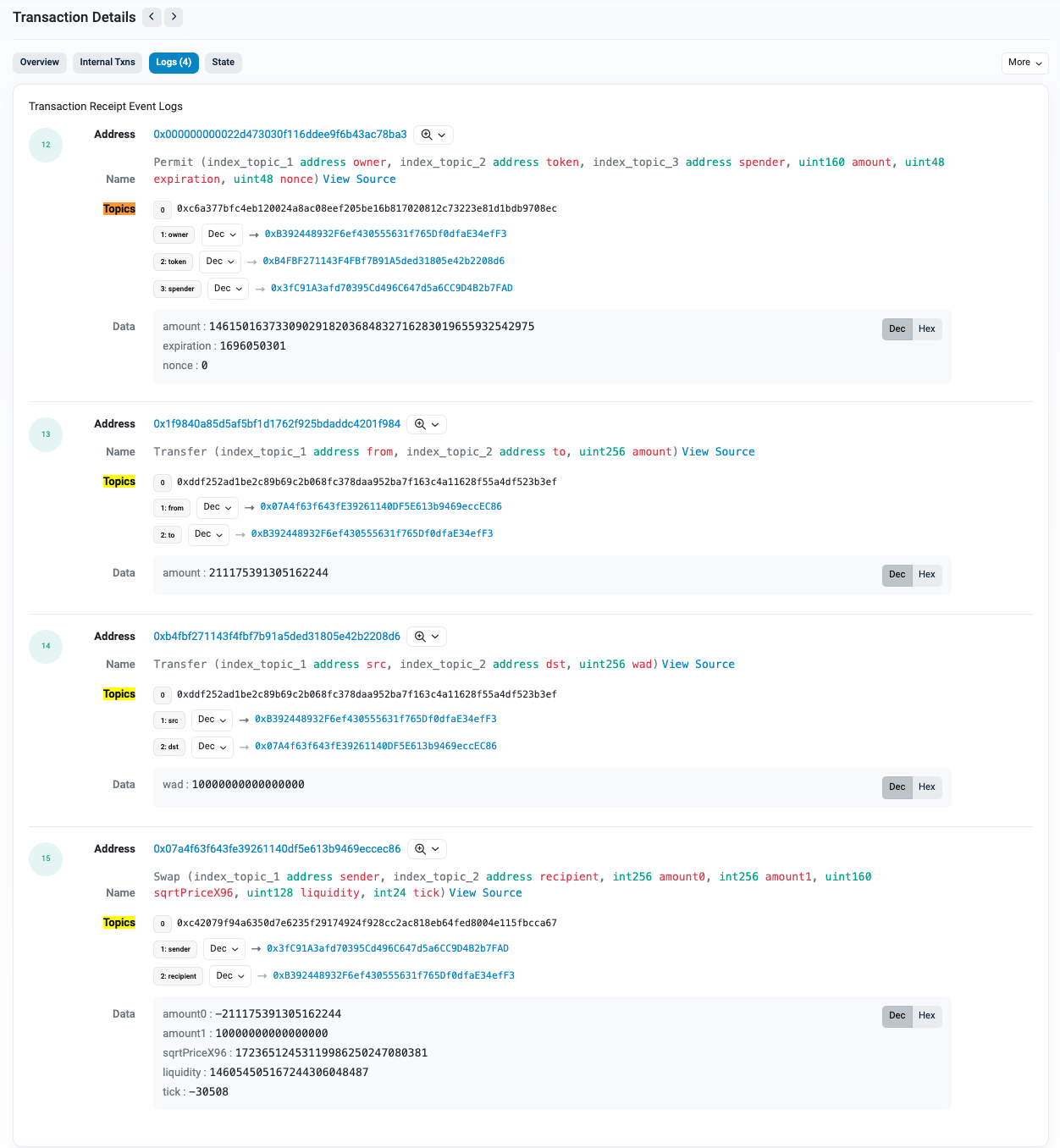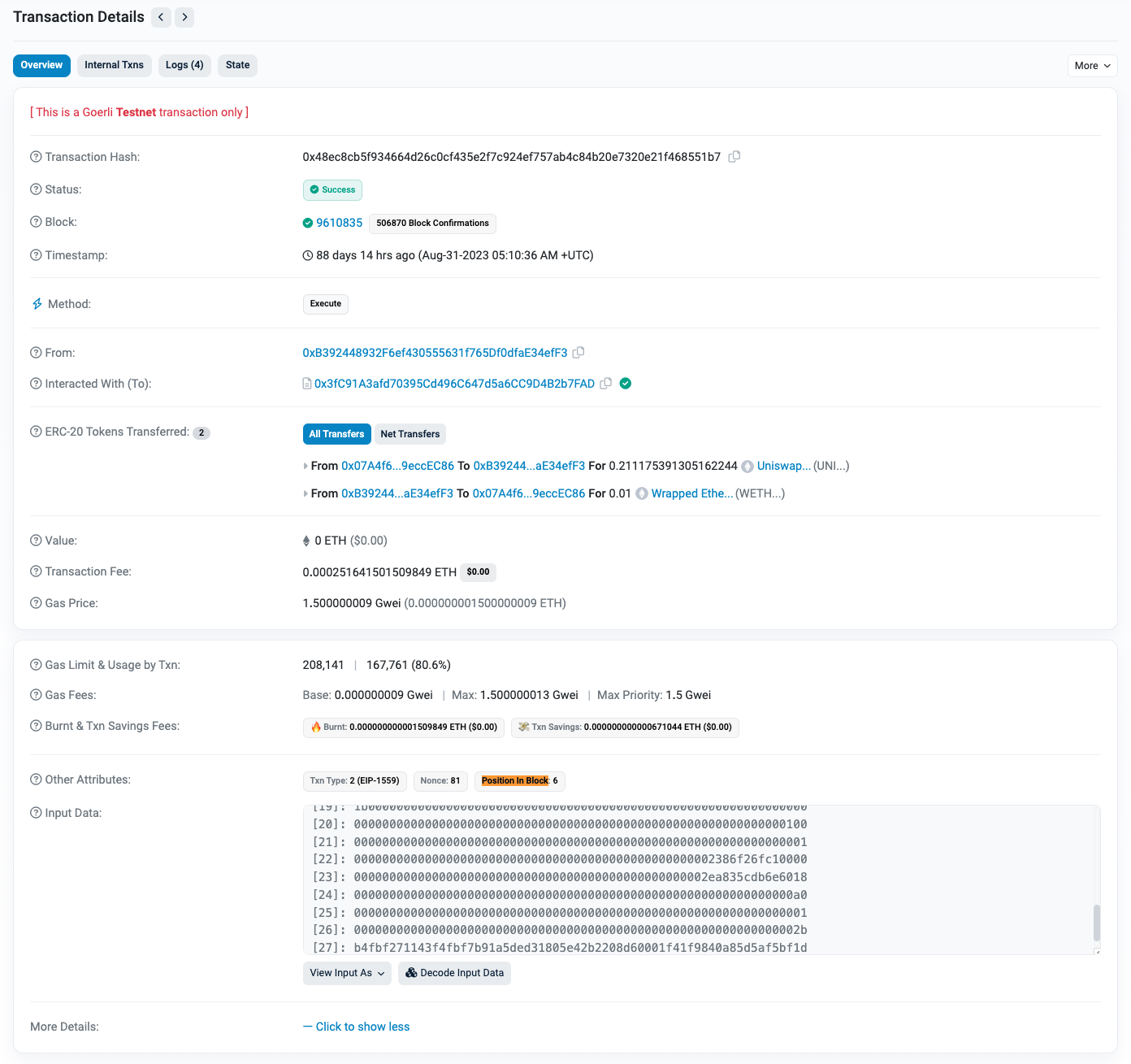Receipts and Logs
Transaction receipts provide metadata about a transaction's execution after it has been included in a block and allow smart contracts to optionally write logs to Ethereum. Receipts are not natively accessible in the EVM, but Axiom allows smart contracts to access them trustlessly. This section outlines the accessible fields in each receipt.
Receipt Fields
status
Indicates whether the transaction succeeded or failed. A value of 1 indicates success, and a value of 0 indicates failure.
cumulativeGasUsed
Records the total amount of gas used by this transaction and all previous transactions in the block.
logsBloom
A Bloom filter over all logs emitted in the receipt.
logs
When a Solidity contract emits an event, that event is saved in that transaction receipt's log array. Within each log are up to three topics and an arbitrary amount of data. You can view the logs for a transaction in the Logs tab on Etherscan.

Other Receipt Concepts
topics
For events emitted in Solidity, topics refers to parameters labeled as indexed in the event definition. These are shown separately from data on Etherscan, and each log has at most 4 topics.

eventSchema
For events defined in Solidity, the eventSchema is the first topic in the log. It is defined as the Keccak256 hash of the signature of the event. For example, for the event
event Transfer(address from, address to, uint256 value)
the eventSchema is keccak256("Transfer(address,address,uint256)). The eventSchema always lives at index 0 of a log, and is a unique identifier of the event. You can view the eventSchema on Etherscan as the topic 0 of the log. To find the eventSchema of a log, you can use cast sig-event from Foundry:
cast sig-event "Transfer(address indexed from, address indexed to, uint256 amount)"

txIdx
This is the position of a transaction in a block. You'll need this to call the getReceipt method. It can be found in the highlighted position on Etherscan.
